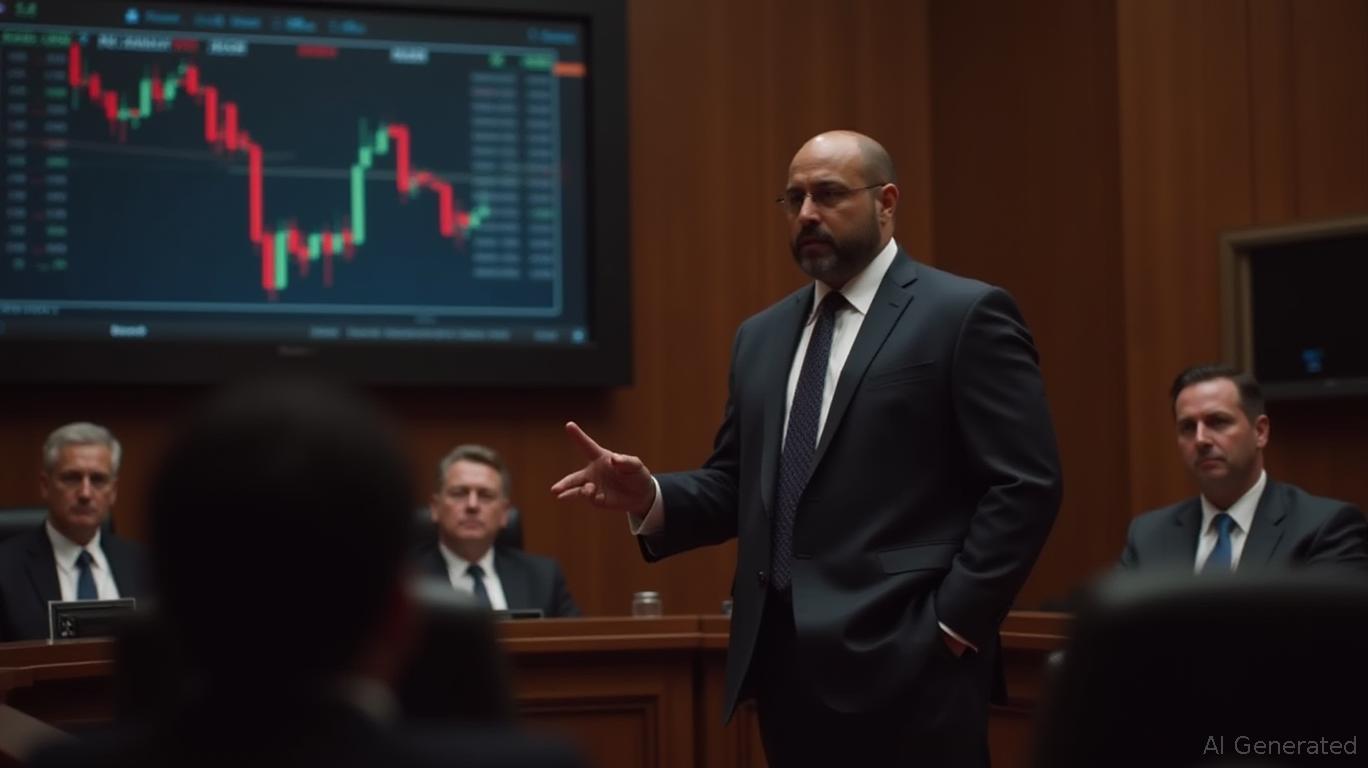Kalshi’s Federal Lawsuit Challenges CFTC Authority Amid Conflict With New York Sports Betting Prohibition
- Kalshi sues New York over sports betting ban, claiming CFTC's federal jurisdiction under the Supremacy Clause. - New York alleges Kalshi operates unlicensed contracts as "sports wagering," demanding compliance with state gambling laws. - Legal experts highlight federal courts' prior favor toward Kalshi, citing CFTC's 2020 DCM designation as regulatory shield. - Case could set precedent for state-federal regulatory conflicts, with Kalshi risking $50M+ annual revenue if banned in New York. - Mixed judicial
Kalshi, a prediction market platform registered with the CFTC, has initiated a federal lawsuit against the New York State Gaming Commission in an effort to halt the enforcement of the state's prohibition on its sports betting contracts. The company contends that the Commodity Futures Trading Commission (CFTC) has sole authority over derivatives trading under the Commodity Exchange Act, making New York's regulatory measures unconstitutional under the Supremacy Clause, as reported by a
The conflict arises from a cease-and-desist order issued by New York on October 24, which accused Kalshi of running an unauthorized mobile sports betting service. State officials classified Kalshi's offerings as "sports wagering" under local statutes, requiring the company to adhere to the same licensing, tax, and regulatory standards as conventional sportsbooks, according to

Legal analysts observe that Kalshi's tactic of initiating proceedings in federal court has proven advantageous in previous disputes. Daniel Wallach, an expert in gaming law, pointed out that this legal strategy shifts the focus to federal preemption rather than the contracts' legality. In comparable cases in Nevada and New Jersey, courts have issued preliminary injunctions in Kalshi's favor, determining that the CFTC's exclusive regulatory authority over swaps and futures overrides state laws, as referenced in a
The implications are significant for Kalshi, which projects that it could lose more than $50 million in annual revenue in New York if forced to discontinue its services. The company is also facing increasing regulatory scrutiny, with states such as Illinois and Arizona likely to adopt similar measures as New York. Wallach suggests that recent court decisions favoring state regulators, like Nevada's dismissal of Crypto.com's case, may encourage additional states to challenge prediction markets, as noted by Decrypt.
The New York gaming commission has yet to issue a public statement regarding the lawsuit but has reiterated its mandate to uphold state gambling regulations. The commission's cease-and-desist notice warned of "imminent civil penalties and fines" should Kalshi persist in offering sports event contracts, which the commission sees as undermining the state's regulated sports betting sector, according to Sports Betting Dime.
The resolution of this legal battle could influence the future relationship between state and federal authorities in the fast-changing prediction markets industry. With more than 1.2 million event contracts traded each year on CFTC-supervised platforms, the CFTC has established itself as a central authority in preventing inconsistent regulatory approaches, as highlighted by Coinotag.
Disclaimer: The content of this article solely reflects the author's opinion and does not represent the platform in any capacity. This article is not intended to serve as a reference for making investment decisions.
You may also like
Aerodrome price surges 10% after Animoca Brands announces strategic investment

Ethereum News Today: Fusaka Upgrade for Ethereum: Achieving Scalability While Maintaining Security and Decentralization
- Ethereum's Fusaka upgrade completes final testnet phase, set for December 3 mainnet launch to enhance scalability and compete with high-throughput blockchains. - Key EIPs like PeerDAS reduce node costs and enable 12,000 TPS, with phased deployment prioritizing security while expanding data capacity and parallel execution. - Upgrade aligns with Ethereum's "Surge" roadmap to resolve the blockchain trilemma, following Pectra's staking improvements and preceding 2026's Glamsterdam phase. - Market analysts pr
Web3’s Fluctuations Encounter 7-Month Nurturing: Fortify Labs Strives for Long-Term Stability
- Fortify Labs, a Web3 accelerator backed by TZ APAC, launched its 2026 application cycle, offering up to $1.3M in funding and seven-month mentorship for sustainable blockchain projects. - The program emphasizes long-term incubation over rapid scaling, leveraging Tezos and Etherlink ecosystems to balance scalability, compliance, and cross-chain interoperability for DeFi and gaming. - Past successes include Questflow (156x user growth) and Sogni AI (90,000 mainnet users), highlighting tailored support in to

Visa’s growth in stablecoin adoption is propelling digital assets into the worldwide marketplace
- Visa expands stablecoin payments across Ethereum, Solana, Stellar, and Avalanche, supporting USD/EUR-pegged assets convertible to 25+ fiat currencies. - Partnerships with Circle and PayPal enable financial institutions to mint/burn stablecoins via Visa's tokenized platform, accelerating $140B+ crypto flows since 2020. - CEO highlights 400% YoY growth in stablecoin-linked card spending, with $2.5B+ annualized settlement volumes in Q4 2025, driven by cross-border payment demand. - Strategic expansion align
